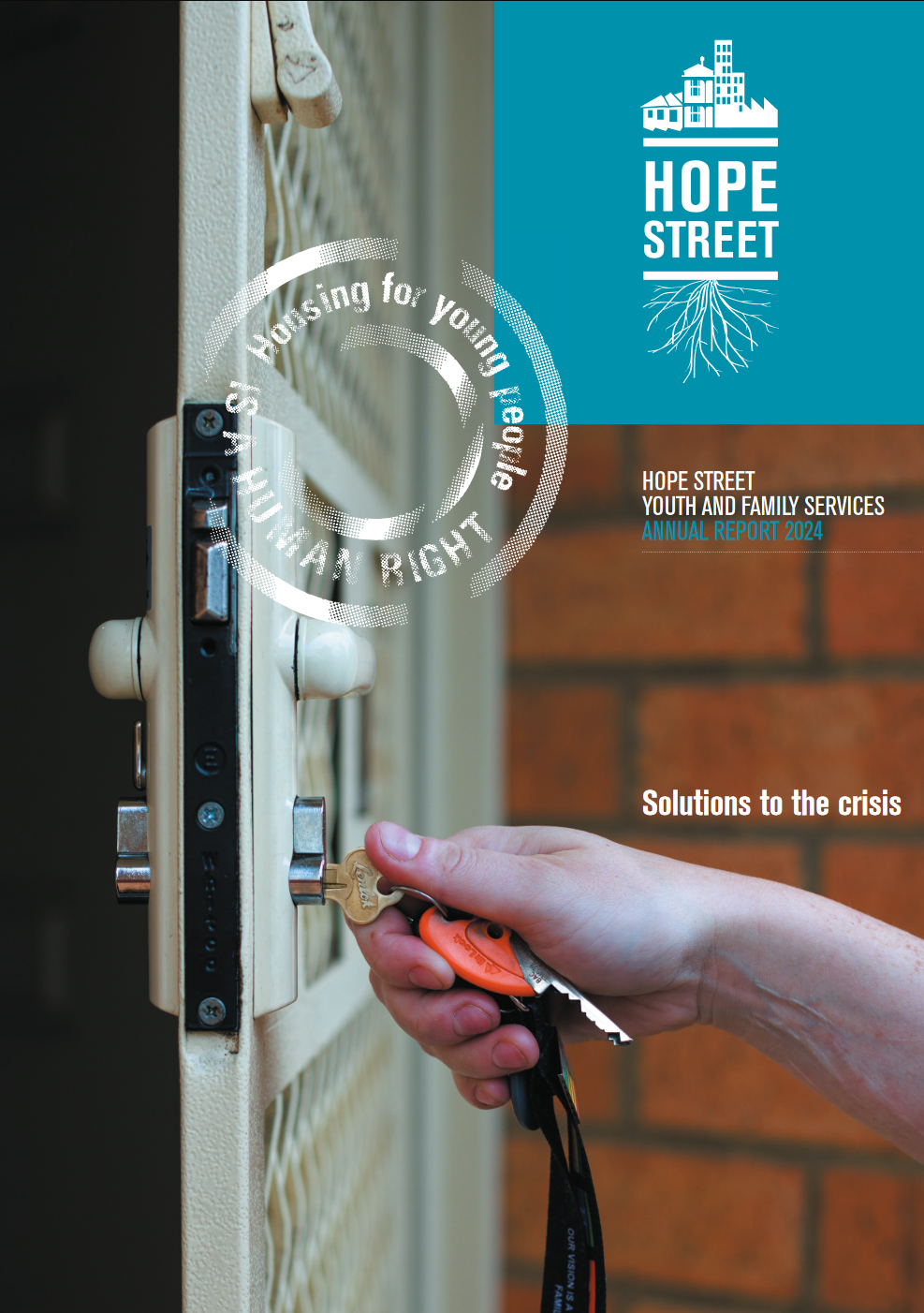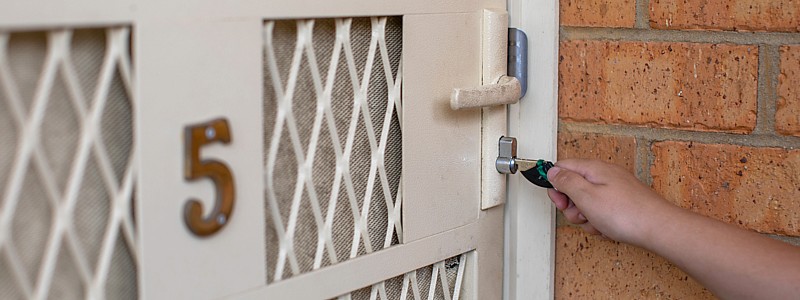The Hope Street First Response Youth Mobile Outreach Service, an innovative place-based model of youth homelessness response, marked its first year of operation in the City of Melton in July 2019. The service launched in July 2018, thanks to a major grant from The Ian Potter Foundation and funding from Hope Street, and has thus far supported 202 young people who are experiencing homelessness – much more than the anticipated 100 young people per year.
Available seven days a week, the First Response Youth Mobile Outreach Service provides local mobile crisis support for young people and young families experiencing (and at risk of experiencing) homelessness. The support provided to young people includes emergency accommodation, meal and grocery vouchers, clothing, emergency back packs containing personal toiletry items, support to engage in employment and education opportunities, assistance navigating the homelessness system and referrals to relevant services.
The First Response Youth Mobile Outreach Service is one of two components of the Hope Street First Response Youth Service. The second component is the Hope Street First Response Youth Service in Melton (Youth Refuge) that provides crisis accommodation to young people who are experiencing homelessness. Hope Street is currently constructing a purpose-built youth refuge in Melton, with the building expected to be complete by the end of 2019. In the meantime, crisis accommodation is being provided via an interim model operating out of rented properties. The refuge and the mobile outreach team work closely together to provide seamless support for young people.
Donna Bennett, Hope Street's Chief Executive Officer, expressed Hope Street's gratitude to The Ian Potter Foundation for funding, in partnership with Hope Street, the first four years of operation for the First Response Youth Mobile Outreach Service. "Every week we hear stories from the mobile outreach team about the young people who are coming forward for support. The majority of them have left home due to traumatic, long-term family violence, neglect and poverty. We are grateful that Hope Street teams can be there to welcome them and to provide the support they need within their local community, without them needing to relocate to the city or another area to find help. It's a great step forward to know that Melton now has its first youth refuge and mobile outreach service for young people who are experiencing homelessness," she said.
Mr Charles Goode, Chair of The Ian Potter Foundation, said the Foundation's focus is on funding major initiatives that address homelessness. "Hope Street's First Response Youth Mobile Outreach Service is an example of what can be achieved when service providers work with the local community. By offering assistance to vulnerable young people in their own community, Hope Street gives them the best chance to avoid long-term homelessness. It is evident the continuity of care model employed by Hope Street works very well in building trust and engagement with young people experiencing or at risk of homelessness," he said.
We spoke to Tegan Tregea, Team Leader for the First Response Youth Mobile Outreach Service, to get some insights from the team on the service and the need in Melton.
The client numbers for the Youth Mobile Outreach Service are far above the annual target of 100. Why do you think this is?
Homelessness is very real and alive in Melton. There's lots of people under socio-economic pressures, lots of family violence and relationship breakdowns, and a growing population which community infrastructure and job availability hasn't kept up with. We are the only youth homelessness service provider in the area, so anyone who is young and homeless in Melton and surrounding areas is coming to Hope Street. The closest refuge for homeless youth is 30 kilometres away from Melton in Sunshine.
The team were taken aback by the response from young people seeking support when the program first launched. We weren't sure how many young people were going to access the service initially and it started out slowly as the community were still getting to hear about the service, and then we had 24 young people come forward for support in the first four weeks of operation! And at the moment we're really only serving central Melton. We know there's a big need for youth homelessness services in the eastern corridor of Melton too, and we haven't yet touched that.
The service is mobile outreach. What are some examples of locations/places your team has been to in order to meet a young person who is in need of support?
The mobility of the service is a critical factor. We are truly mobile. We get calls from young people from all sorts of places and we go to wherever they are and provide the support we need. We've picked young people up from out the front of their houses, we've met them at Woodgrove Shopping Centre or Coles, we've gone to Centrelink or the Melton City Council Youth Services, local secondary schools and even the local Hungry Jacks.
Could you see this program being replicated in other areas? Do you think it's best suited for outer-suburban areas such as Melton or could it also work in the city and/or in rural areas?
Yes, the program can and should be replicated in other outer-suburban areas and rural/regional areas where there are no existing services for youth homelessness. The cities have lots of services available, so the focus should be on outer-urban and rural areas where the need is great and the response has barely started.
You are working in partnership with a couple of local private accommodation providers to provide emergency accommodation for young people. Tell us about the journey of bringing these accommodation providers on board.
To be honest, it's been a struggle to find accommodation providers who are happy to accept young people who are experiencing homelessness. Many of our clients are under 18 years old and many private accommodation providers won't accept them because of their age. Even with the older ones who are over 18 years, the accommodation providers tell us they don't have rooms available when we know they do, and they have said things like "we don't want those people staying here." There's a lot of stigma and discrimination made against young people who experience homelessness. However we do have two accommodation providers who readily accept our clients whenever we need a bed for them. They have both been incredible and every young person we have placed with them has been a real treasure and caused no issues at all. Hopefully more accommodation providers will realise that these are just young people in need of a roof over their heads and they will give them a chance.
Hope Street plans to bring the First Response Youth Service to the City of Whittlesea in the next two years, on land already committed for the purpose by the Whittlesea City Council. The City of Whittlesea is a growth corridor outer-suburban area that reports high rates of youth disadvantage, disengagement and homelessness. There is currently no youth refuge in the area.
For interview and photo opportunities, please contact Donna Bennett, CEO, at .
To learn more about youth homelessness and young people's lived experiences of homelessness, please see I Am A Young Person.














